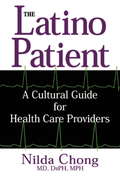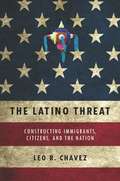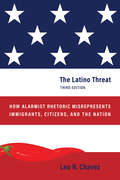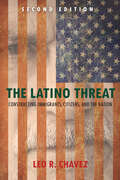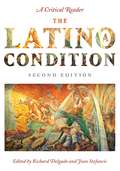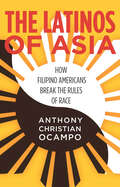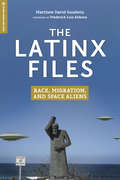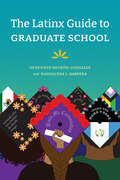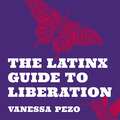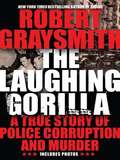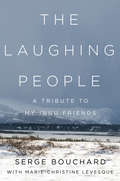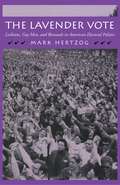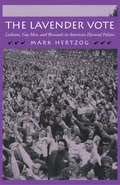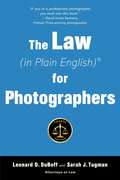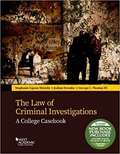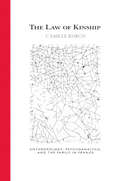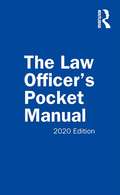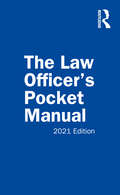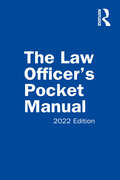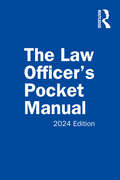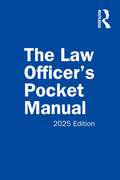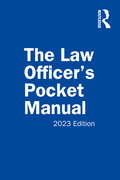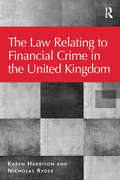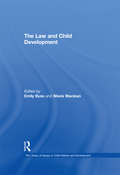- Table View
- List View
The Latino Patient: A Cultural Guide For Health Care Providers
by Nilda ChongBy 2030 Latinos will comprise roughly 20 percent of the population of the United States. Growing numbers of health professionals are realizing the importance of understanding Latino cultural values as they impact the clinical encounter. Such knowledge can enhance their ability to communicate with and treat Latina patients effectively and respectfully. The Latino Patient provides an in-depth exploration of Latino diversity, relevant cultural values, health status, beliefs, and practices; and effective communication strategies. The author has developed an original, practice-oriented model that leads the reader from greeting the patient to ultimately negotiating treatment. The book is hands-on and provides numerous vignettes gleaned from the author's experience. The Latino Patient should be high-priority reading for physicians, nurses, physician's assistants, therapists, clinical psychologists, social workers and other clinicians.
The Latino Patient: A Cultural Guide for Health Care Providers
by Nilda ChongBy 2030 Latinos will comprise roughly 20 percent of the population of the United States. Growing numbers of health professionals are realizing the importance of understanding Latino cultural values as they impact the clinical encounter. Such knowledge can enhance their ability to communicate with and treat Latina patients effectively and respectfully. The Latino Patient provides an in-depth exploration of Latino diversity, relevant cultural values, health status, beliefs, and practices; and effective communication strategies. The author has developed an original, practice-oriented model that leads the reader from greeting the patient to ultimately negotiating treatment. The book is hands-on and provides numerous vignettes gleaned from the author’s experience. The Latino Patient should be high-priority reading for physicians, nurses, physician’s assistants, therapists, clinical psychologists, social workers and other clinicians.
The Latino Threat: Constructing Immigrants, Citizens, and the Nation
by Leo ChavezThe April 2005 Minuteman Project, in which vigilantes from the US patrolled the border with Mexico, and the mass rallies of Latinos in many US cities during the spring of 2006, says Chavez (anthropology, U. of California-Irvine), were both elements in an ongoing debate about immigration, the meaning of citizenship, and the power of media spectacles. He discovers a narrative that Latinos, unlike previous immigrants, are unwilling or incapable of integrating into US life, and are devoted to reconquering the southwest of the country that was stolen from them and destroying the American way of life.
The Latino Threat: How Alarmist Rhetoric Misrepresents Immigrants, Citizens, and the Nation, Third Edition
by Leo R. ChavezNews media and pundits too frequently perpetuate the notion that Latinos, both US-born and immigrants, are an invading force bent on destroying the American way of life. Leo R. Chavez challenges the basic tenets of this assumption and other myths of the "Latino threat," providing a critical investigation into the fears and prejudices that are used to malign an entire population. In this updated and expanded third edition of his groundbreaking book, Chavez incorporates Donald Trump's emergence in American political life, with particular focus on the US-Mexico border as a site of political theater and the further sharpening of anti-Latino and anti-immigration rhetoric in public discourse. He also includes new discussions of "anchor babies," Dreamers and DACA, Latina reproduction and white replacement theory, and the emotional and psychological effects of negative political rhetoric on those whom it targets. Through trenchant analysis, this book reexamines urgent questions about what it means to be American.
The Latino Threat: Second Edition
by Leo R. ChavezNews media and pundits too frequently perpetuate the notion that Latinos, particularly Mexicans, are an invading force bent on reconquering land once their own and destroying the American way of life. In this book, Leo R. Chavez contests this assumption's basic tenets, offering facts to counter the many fictions about the "Latino threat." With new discussion about anchor babies, the DREAM Act, and recent anti-immigrant legislation in Arizona and other states, this expanded second edition critically investigates the stories about recent immigrants to show how prejudices are used to malign an entire population—and to define what it means to be American.
The Latino/a Condition: A Critical Reader (Second Edition)
by Richard Delgado Jean StefancicOffers a broad portrait of Latino/a life in the United States at the beginning of the twenty-first century.
The Latinos of Asia
by Anthony OcampoIs race only about the color of your skin? In The Latinos of Asia, Anthony Christian Ocampo shows that what "color" you are depends largely on your social context. Filipino Americans, for example, helped establish the Asian American movement and are classified by the U.S. Census as Asian. But the legacy of Spanish colonialism in the Philippines means that they share many cultural characteristics with Latinos, such as last names, religion, and language. Thus, Filipinos' "color"--their sense of connection with other racial groups--changes depending on their social context. The Filipino story demonstrates how immigration is changing the way people negotiate race, particularly in cities like Los Angeles where Latinos and Asians now constitute a collective majority. Amplifying their voices, Ocampo illustrates how second-generation Filipino Americans' racial identities change depending on the communities they grow up in, the schools they attend, and the people they befriend. Ultimately, The Latinos of Asia offers a window into both the racial consciousness of everyday people and the changing racial landscape of American society.
The Latinx Files: Race, Migration, and Space Aliens (Global Media and Race)
by Matthew David GoodwinIn science fiction and popular culture, Latinxs and Latinx immigrants are often correlated with invading space aliens. At times serious, at other times a farce, this correlation is typically meant in a derogatory way to portray Latinxs as foreign and threatening the nation. In The Latinx Files, Matthew David Goodwin traces how Latinx science fiction writers are reclaiming the space alien from its xenophobic legacy in the science fiction genre. The book argues that the space alien is a vital Latinx figure which is preserving Latinx cultures by activating the myriad possible constructions of the space alien to represent race and migration in the popular imagination. The works discussed in this book, including those of Gloria Anzaldúa, Junot Diaz, Lalo Alcaraz, and many others, often explicitly reject the derogatory correlation of the space alien and Latinxs, while at other times, they contain space aliens that function as a source of either enlightenment or horror for Latinx communities. Throughout this nuanced analysis, The Latinx Files demonstrates how the character of the space alien has been significant to Latinx communities and has great potential for future writers and artists.
The Latinx Guide to Graduate School
by Genevieve Negrón-Gonzales Magdalena L. BarreraIn The Latinx Guide to Graduate School Genevieve Negrón-Gonzales and Magdalena L. Barrera provide prospective and current Latinx graduate students in the humanities and social sciences fields with a roadmap for surviving and thriving in advanced-degree programs. They document the unwritten rules of graduate education that impact Latinx students, demystifying and clarifying the essential requirements for navigating graduate school that Latinx students may not know because they are often the first in their families to walk that path. Topics range from identifying the purpose of graduate research, finding the right program, and putting together a strong application to developing a graduate student identity, cultivating professional and personal relationships, and mapping out a post--graduate school career. The book also includes resources for undocumented students. Equal parts how-to guide, personal reflection, manifesto, and academic musing, this book gives a culturally resonant perspective that speaks to the unique Latinx graduate student experience.
The Latinx Guide to Liberation: Healing from Historical, Generational, and Individual Trauma
by Vanessa Pezo"Let us heal together. But first I invite you to take a breath."The impact of colonialism, generational trauma, and individual trauma is often disregarded in the Latinx community. This pioneering guide addresses this trauma and takes Latinx readers on a journey of healing and liberation.. It explores what it means to have been systematically oppressed, how it impacts us, and how to change it. In doing so, this book challenges stereotypes, unravels the shame-based narratives around Latinx mental health, and refocuses the conversation around cultural empowerment, awareness, and transformation.Each chapter is enriched with historically informed psychoeducation regarding the impact of various types of trauma on Latinx mental health. It also includes reflection questions and healing exercises to help readers process how they, their families, and communities have been impacted.Accessible and interactive, this is an invaluable resource for Latinx people and mental health professionals working within the Latinx community.
The Laughing Gorilla
by Robert GraysmithDuring the 1920s, in more than a dozen cities, over four years, and across two continents, women were being butchered. Eyewitneses claim the perpetrator was a hulking Bible-carrying brute who lumbered on all fours, and laughed maniacally with each new slaughter. The crimes haunted San Francisco Police Captain Charles Dullea, the last honest cop in one of the most notoriously corrupt departments in the country. But nothing could have prepared Dullea for where the case- and the truth-would take him.
The Laughing People: A Tribute to My Innu Friends
by Serge BouchardThe Laughing People, translated from the award-winning Le peuple rieur, conveys the richness and resilience of the Innu while reminding us of the forces – old and new – that threaten their community. This memoir and tribute tells the tale of the very long journey of a very small nation, recounting both its joie de vivre and its crosses borne.Readers follow Serge Bouchard, a young anthropologist in the 1970s, as he arrives in Ekuanitshit (Mingan, Quebec) and comes to know its residents. His observations and questions document a community weathering yet another season of change – skidoos replace dogsleds and forests are bulldozed for prefabricated housing – while nonetheless defying external pressures to assimilate or disappear altogether. Returning to these texts fifty years later, Bouchard moves beyond platitudes of strength and dives into wide-scale injustices to present the sacrifices and beauty of the Innu people on individual terms.Whether recounting the impact of the residential school system on Georges Mestokosho, the wave of Innu activism inspired by An Antane Kapesh, or the uncelebrated work of women like Nishapet Enim, The Laughing People presents an opportunity for readers to be part of the preservation and proliferation of these important stories.
The Lavender Vote: Lesbians, Gay Men, and Bisexuals in American Electoral Politics
by Mark HertzogTraces the influences of lesbian, gay and bisexual voters in American electionsIn the half century since the Stonewall riots in New York City's Greenwich Village launched the national gay-rights movement in earnest, LGB voters have steadily expanded their political influence. The Lavender Vote is the first full- length examination of lesbians, gay men, and bisexuals as a factor in American elections. Mark Hertzog here describes the differences in demographics, attitudes, and voting behavior between self-identified bisexuals and homosexuals and the rest of the voting population. He shows that lavender self-identifiers comprise a distinctive voting bloc equal in numbers to Latino voters, more liberal across the board on domestic social issues (though not necessarily on economic or national security issues) than non-gay voters, and extremely unified in high-salience elections. Further, lavender voters, contrary to popular belief, are up for grabs between the two major parties. Offering a clear and thorough explanation of LGB voting tendencies, this volume will be must-reading for elected officials, candidates for office, and all those interested in learning about LGB voters.
The Lavender Vote: Lesbians, Gay Men, and Bisexuals in American Electoral Politics (Open Access Lib And Hc Ser.)
by Mark HertzogIn the quarter century since the Stonewall riots in New York City's Greenwich Village launched the national gay-rights movement in earnest, LGB voters have steadily expanded their political influence. The Lavender Vote is the first full- length examination of lesbians, gay men, and bisexuals as a factor in American elections. Mark Hertzog here describes the differences in demographics, attitudes, and voting behavior between self-identified bisexuals and homosexuals and the rest of the voting population. He shows that lavender self- identifiers comprise a distinctive voting bloc equal in numbers to Latino voters, more liberal across the board on domestic social issues (though not necessarily on economic or national security issues) than non-gay voters, and extremely unified in high-salience elections. Further, lavender voters, contrary to popular belief, are up for grabs between the two major parties.Offering a clear and thorough explanation of LGB voting tendencies, this volume will be must-reading for elected officials, candidates for office, and all those interested in learning about LGB voters.
The Law (In Plain English)
by Leonard D. DuBoff Sarah J. Tugman&“If you&’re a professional photographer, you must own this book.&” —David Hume Kennerly, Pulitzer Prize winner, former White House photographer, University of Arizona presidential scholar The All-in-One Resource for Photographers at All Levels In The Law (in Plain English)® for Photographers, Leonard D. DuBoff and Sarah J. Tugman walk readers through the legal landscape of the photography business. In easy-to-understand terms and with plenty of examples, this comprehensive resource covers everything from organizing a business to privacy rights to copyright questions. Clearly outlined chapters will help readers to:Comprehend intellectual property lawsIdentify defamation and libelDistinguish rights of privacy and publicityNavigate censorship and obscenity rulesUnderstand photo licenses and restrictionsOrganize a photography businessDraft strong contracts and resolve disputesProperly file taxes and take advantage of deductionsSelect and utilize insurance plansPrepare an estate plan To master the legal side of the business, all photographers need to have this essential guide in their libraries.
The Law Of Criminal Investigations: A College Casebook (Higher Education Coursebook)
by Joshua Dressler Stephanie Mizrahi George Thomas IIIThis newly designed casebook provides the perfect balance between the challenges of the case method and the needs of undergraduate and graduate students who may, or may not, be headed to law school. The Law of Criminal Investigations: A College Casebook makes use of many of your favorite U.S. Supreme Court cases; edited to reflect the needs of undergraduate students, with Notes and Questions that help illuminate the case and show how it works in the real world. Also included are narratives and summaries that explain and synthesize some of the more complicated legal nuances found in the world of criminal procedure. Written by renowned law professors and authors, Joshua Dressler and George Thomas, who are now joined by Dr. Stephanie Lipson Mizrahi, this book will appeal to all criminal procedure teachers who want to offer their students more in-depth coverage and analysis of this important topic.
The Law Of Kinship
by Camille RobcisIn France as elsewhere in recent years, legislative debates over single-parent households, same-sex unions, new reproductive technologies, transsexuality, and other challenges to long-held assumptions about the structure of family and kinship relations have been deeply divisive. What strikes many as uniquely French, however, is the extent to which many of these discussions-whether in legislative chambers, courtrooms, or the mass media-have been conducted in the frequently abstract vocabularies of anthropology and psychoanalysis. In this highly original book, Camille Robcis seeks to explain why and how academic discourses on kinship have intersected and overlapped with political debates on the family-and on the nature of French republicanism itself. She focuses on the theories of Claude Levi-Strauss and Jacques Lacan, both of whom highlighted the interdependence of the sexual and the social by positing a direct correlation between kinship and socialization. Robcis traces how their ideas gained recognition not only from French social scientists but also from legislators and politicians who relied on some of the most obscure and difficult concepts of structuralism to enact a series of laws concerning the family. Levi-Strauss and Lacan constructed the heterosexual family as a universal trope for social and psychic integration, and this understanding of the family at the root of intersubjectivity coincided with the role that the family has played in modern French law and public policy. The Law of Kinship contributes to larger conversations about the particularities of French political culture, the nature of sexual difference, and the problem of reading and interpretation in intellectual history.
The Law Officer's Pocket Manual: 2020 Edition
by John G. Miles Jr. David B. Richardson Anthony E. ScudellariThe Law Officer’s Pocket Manual is a handy, pocket-sized, spiral-bound manual that highlights basic legal rules for quick reference and offers examples showing how those rules are applied. The manual provides concise guidance based on U.S. Supreme Court rulings on constitutional law issues and other legal developments, covering arrest, search, surveillance, and other routine as well as sensitive areas of law enforcement. It includes more than 100 examples drawn from leading cases to provide guidance on how to act in a wide variety of situations. The 2020 edition is completely updated to reflect recent court decisions. This book helps you keep track of everything in a readable and easy-to-carry format. Some of the most important case rulings from the past 12 months include: The U.S. Supreme Court ruled that probable cause for an arrest precludes a later First Amendment retaliatory arrest claim. The U.S. Supreme Court determined that the exigent circumstances doctrine to the Fourth Amendment will generally allow for a blood draw from an unconscious motorist to be performed without a warrant. The Eleventh Circuit ruled that seizing items, such as a mobile phone, from bystanders violates clearly established law and subjects the officer to a civil rights lawsuit. The Ninth Circuit ruled that the seizure of a mobile phone without a warrant following a high-speed chase was justified as an inventory search under the Fourth Amendment. The Second Circuit dove into the circuit split on rental car searches, deciding that an unlicensed driver not in lawful possession of the vehicle cannot challenge the search. The Seventh Circuit explained that the exclusionary rule does not apply to an illegal entry if there is overwhelming evidence of probable cause and a search warrant was planned before entry. The Second Circuit reaffirmed the principle that prolonging a traffic stop is not unconstitutional if the reason is supported by reasonable suspicion. Annually updated since 1972, The Law Enforcement Pocket Manual, provides police officers, criminal justice practitioners, and students with historical and social context for their role in criminal justice and the guidelines that should be followed in day-to-day policing activities.
The Law Officer's Pocket Manual: 2021 Edition
by John G. Miles Jr. David B. Richardson Anthony E. ScudellariThe Law Officer’s Pocket Manual is a handy, pocket-sized, spiral-bound manual that highlights basic legal rules for quick reference and offers examples showing how those rules are applied. The manual provides concise guidance based on U.S. Supreme Court rulings on constitutional law issues and other legal developments, covering arrest, search, surveillance, and other routine as well as sensitive areas of law enforcement. It includes more than 100 examples drawn from leading cases to provide guidance on how to act in a wide variety of situations. The 2021 edition is completely updated to reflect recent court decisions. This book helps you keep track of everything in a readable and easy-to-carry format. Some important case rulings from the past 12 months include: The U.S. Supreme Court made clear that it is common sense for an officer pulling over a vehicle to assume, without additional evidence, that the driver is the registered owner. The U.S. Supreme Court appeared to signal the end to so-called Bivens suits filed against federal officers for constitutional violations. The First Circuit extended the community caretaking doctrine to the home in finding officers’ warrantless entry justified. In the continuing evolution of the stop-and-frisk doctrine, the Second Circuit ruled that officers need more than a belief that a suspect possess something illicit—they must reasonably believe the suspect may pose a threat. The Tenth Circuit ruled that an officer’s 15-minute phone call to a national database was reasonable and did not impermissibly extend a traffic stop. The Seventh Circuit said that the smell of marijuana combined with a driver’s "shocked" body language justified a trunk search. The Fourth Circuit tossed a man’s gun convictions after the officers arrested the man at his girlfriend’s residence without probable cause that he lived there. Routledge offers tiered discounts on bulk orders of 5 or more copies. For more information, please visit: https://www.routledge.com/collections/16268
The Law Officer's Pocket Manual: 2022 Edition
by John G. Miles Jr. David B. Richardson Anthony E. ScudellariThe Law Officer’s Pocket Manual is a handy, pocket-sized, spiral-bound manual that highlights basic legal rules for quick reference and offers examples showing how those rules are applied. The manual provides concise guidance based on U.S. Supreme Court rulings on constitutional law issues and other legal developments, covering arrest, search, surveillance, and other routine as well as sensitive areas of law enforcement. It includes more than 100 examples drawn from leading cases to provide guidance on how to act in a wide variety of situations.
The Law Officer's Pocket Manual: 2024 Edition
by John G. Miles Jr. David B. Richardson Anthony E. ScudellariThe Law Officer’s Pocket Manual is a handy, pocket-sized, spiral-bound manual that highlights basic legal rules for quick reference and offers examples showing how those rules are applied. The manual provides concise guidance based on U.S. Supreme Court rulings on constitutional law issues and other legal developments, covering arrest, search, surveillance, and other routine as well as sensitive areas of law enforcement. It includes more than 100 examples drawn from leading cases to provide guidance on how to act in a wide variety of situations. The 2023 edition is completely updated to reflect recent court decisions. This book helps you keep track of everything in a readable and easy-to-carry format. Routledge offers tiered discounts on bulk orders of 5 or more copies: For more information, please visit: https://www.routledge.com/collections/16268
The Law Officer's Pocket Manual: 2025 Edition
by John G. Miles Jr. David B. Richardson Anthony E. ScudellariPrepared by Patrick J. Sobkowski, J.D.The Law Officer’s Pocket Manual is a handy, pocket-sized, spiral-bound manual that highlights basic legal rules for quick reference and offers examples showing how those rules are applied. The manual provides concise guidance based on U.S. Supreme Court rulings on constitutional law issues and other legal developments, covering arrest, search, surveillance, and other routine as well as sensitive areas of law enforcement. It includes more than 100 examples drawn from leading cases to provide guidance on how to act in a wide variety of situations. The 2025 edition is completely updated to reflect recent court decisions. This book helps you keep track of everything in a readable and easy-to-carry format.Routledge offers tiered discounts on bulk orders of 5 or more copies: For more information and to learn about other Books for Law Enforcement Professionals, please visit: https://www.routledge.com/collections/16268
The Law Officer’s Pocket Manual, 2023 Edition
by John G. Miles Jr. David B. Richardson Anthony E. ScudellariThe Law Officer’s Pocket Manual is a handy, pocket-sized, spiral-bound manual that highlights basic legal rules for quick reference and offers examples showing how those rules are applied. The manual provides concise guidance based on U.S. Supreme Court rulings on constitutional law issues and other legal developments, covering arrest, search, surveillance, and other routine as well as sensitive areas of law enforcement. It includes more than 100 examples drawn from leading cases to provide guidance on how to act in a wide variety of situations. The 2023 edition is completely updated to reflect recent court decisions. This book helps you keep track of everything in a readable and easy-to-carry format. Routledge offers tiered discounts on bulk orders of 5 or more copies: For more information, please visit: https://www.routledge.com/collections/16268
The Law Relating to Financial Crime in the United Kingdom (The Law of Financial Crime)
by Nicholas Ryder Karen HarrisonOutlining the different types of financial crime and its impact, this book is a user-friendly, up-to-date guide to the regulatory processes, systems and legislation which exist in the UK. Each chapter has a similar structure and covers individual financial crimes such as money laundering, terrorist financing, fraud, insider dealing, market abuse and bribery and corruption. Offences are summarized and their extent is evaluated using national and international documents. Detailed assessments of financial institutions and regulatory bodies are made and the achievements of these institutions are analysed. Sentencing and policy options for different financial crimes are included and suggestions are made as to how criminal proceeds might be recovered. Drawing the different themes of the book together, the final chapter makes recommendations for the future and will provoke further thought and discussion on this topical subject. Each chapter also has a section on Recommending Reading. It will be a valuable resource for students studying vocational courses and will be a key text for undergraduate and post-graduate students in law schools, departments of criminal justice and business schools.
The Law and Child Development (The Library of Essays in Child Welfare and Development)
by Mavis MacleanThis volume asks what legal and socio legal scholarship can contribute to understanding the role of law in the care and development of children. The editors have selected key articles ranging from theoretical analysis to empirical data based research that address the law's approach in the United States and the United Kingdom to resolving parenting disputes after separation, protecting children from abuse and neglect, and affording children procedural protections in the juvenile justice system. Their introduction to these important and often distressing areas of the law confirms the importance of understanding how law works in practice, and reaffirms that law itself remains responsible for articulating and protecting society's values.

